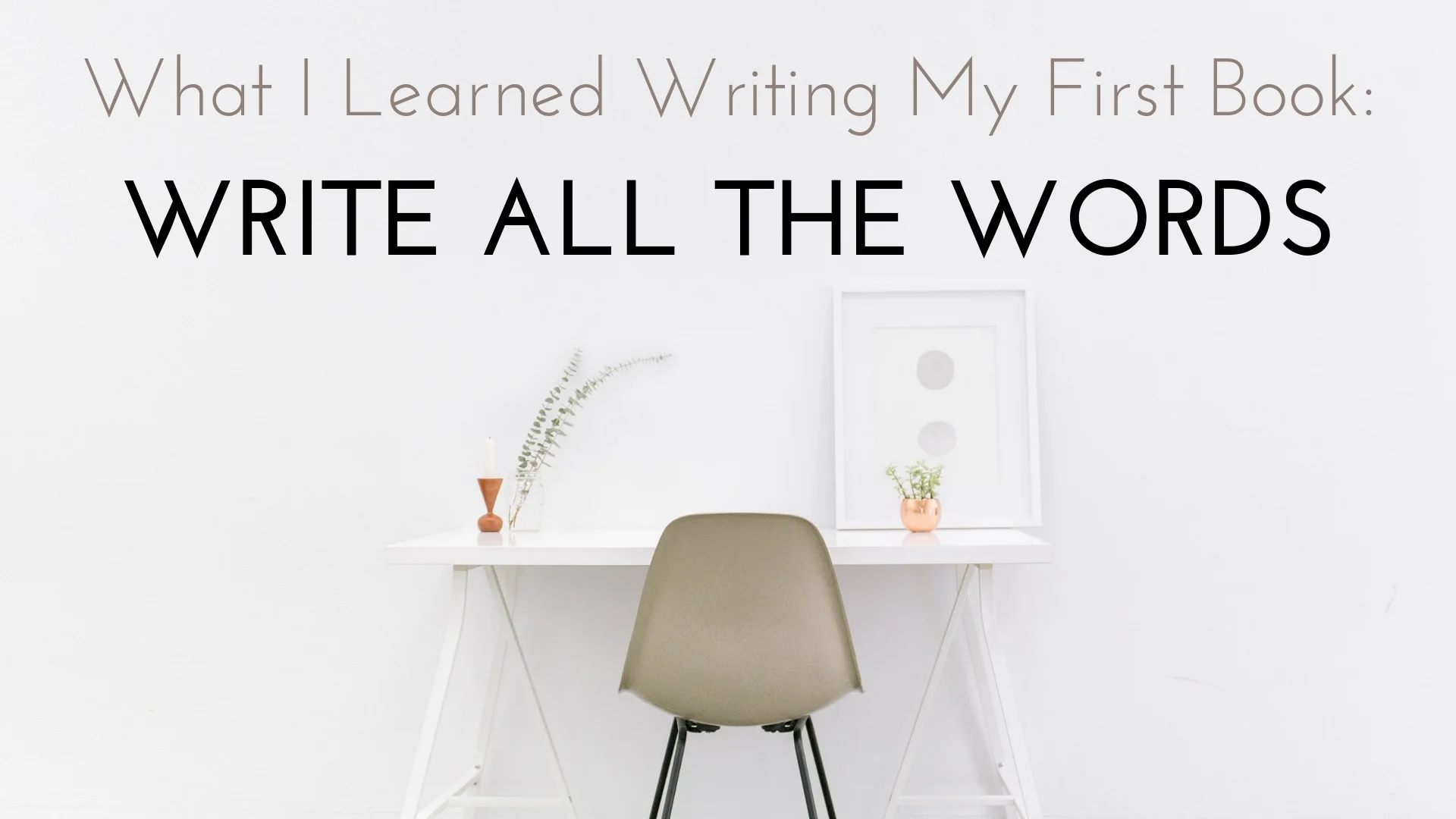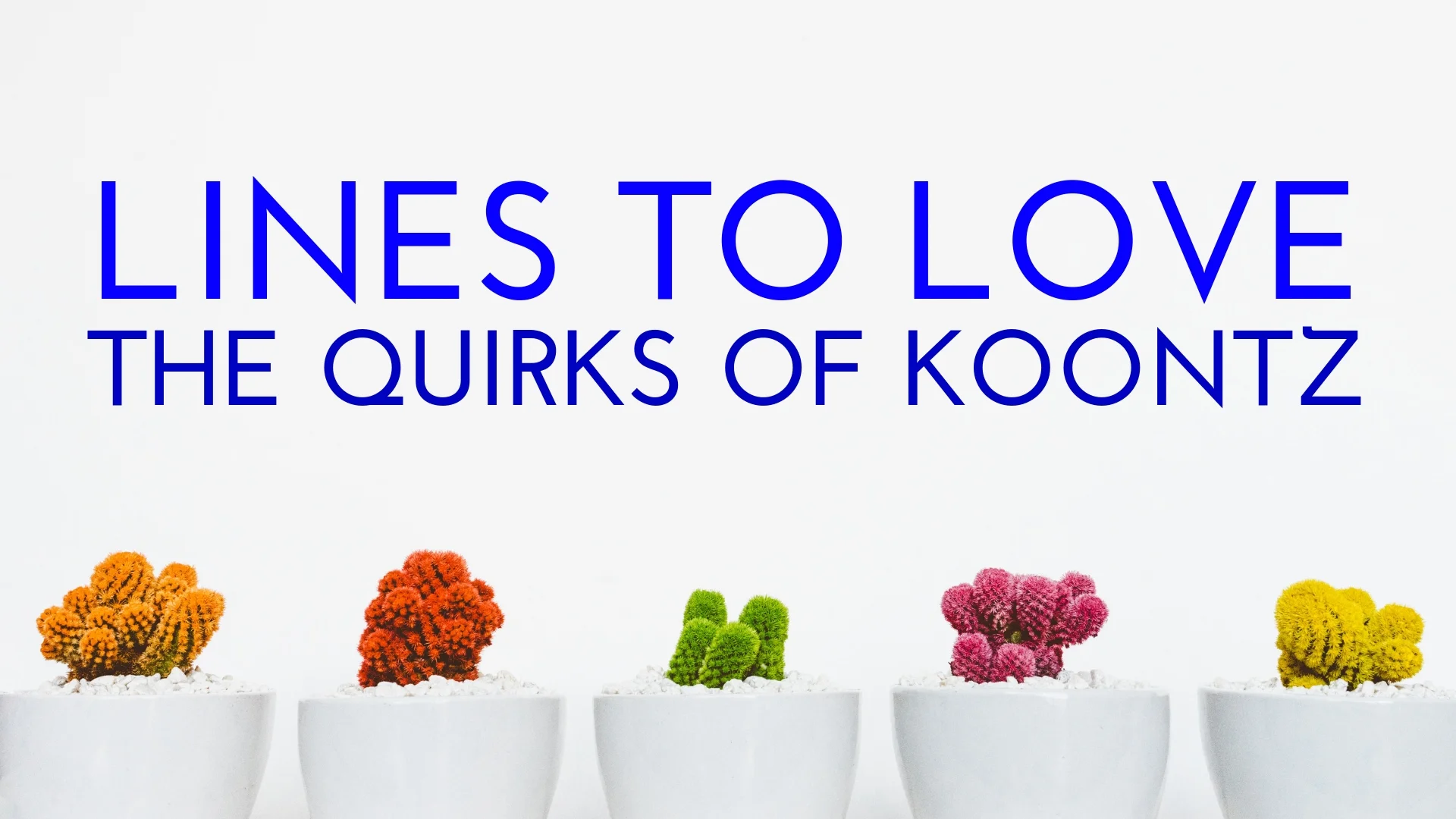What I've Learned Writing My First Book: Write All The Words
In the movie My Blue Heaven, there is a line that has stuck with me.
“It’s not tipping I believe in; it’s overtipping.”
While I do actually believe in the importance of being a good tipper- and if you have a fantastic server, I encourage you to overtip- this line has been coming to me for another reason altogether.
As you know, I’m re-writing my first novel. It’s taking a lot of time- longer than I thought it would- but I’m successfully whittling the words out that need to go and tightening up the story as well as the writing. The progress is solid and I’m thrilled to be making it.
But there’s one thing I have learned. I’m happy I overwrote the first draft. You see, when it comes to first drafts, it’s not writing I believe in; it’s overwriting.
With the publishing industry being what it is, focusing on word count becomes really important. They don’t want to publish weighty tomes- digitally or otherwise. It’s not a popular thing in the current culture- unless you’re a fantasy writer. It feels like they get away with murder word count wise. Regardless, as an author, counting every word is intimidating. It makes you want to curtail yourself. But with first drafts, overwriting is not only all right, it’s essential.
A sculptor begins with a block of marble. The first thing she does is start the process of taking away in order to unearth the statue or bust that she sees within that block.
Michelangelo, perhaps one of the most famous sculptors to ever wield a mallet, said:
“Every block of stone has a statue inside of it and it is the task of the sculptor to discover it.”
An overwritten draft is just like that. You write all the words- every thought, every idea, every plot highway and byway. Do as Maria Von Trapp says- Climb every mountain. Write it all down. Because the beauty of writing it all down is that you’ll make discoveries. Even if those discoveries never see the final pages of your novel, that’s all right.
What I’ve learned is that what I wrote in my first draft and subsequently removed in later drafts has helped me flesh out characters and plot lines more fully. It’s even opened the doors to new book ideas. While the reader may never need to know the nuances, I did need to know them in order to write the story well.
And once all the words are written in that first draft, there’s one thing you absolutely must do. Type The End or Finis, whichever tickles your fancy. Close out the document. Shut off the computer. And celebrate it. Pop the cork. Drink the champagne. Toast your success. You’ve done the thing. You’ve written all the words. Now, walk away from it for a month. Start another project. Write something completely unrelated. Jot down a few short stories. Let your mind wander to new and wonderful places. Forget about Draft One.
The forgetting is important. Why? Because you’re going to be taking a chisel to it. Sometimes you’ll actually be using a mallet to whack away chunks. And if you’re too close to it, the process will be painful. If the sculptor were to get too attached to that block of marble, she would be unable to chip away at it until the statue was realized.
To return to Michelangelo and his sculpting wisdom:
“I saw the angel in the marble and carved until I set him free.”
That’s what you’re doing in the editing and rewriting process. You’re setting the true story free from the block that is the first draft. You know what it should be and then you carve out the words and ideas and scenes that prevent it from being fully realized.
I suppose the one thing that has been in my favor with Book One is the amount of time it has taken me to get though the re-write/editing process. Since there’s so much time between when I first wrote all the words to the cutting out of many of the words, I don’t feel the pain I thought I would. I’m more attached to having the best book as the final outcome rather than those trivial or quixotic moments and scenes I first thought were pure gold.
I understand the importance of deadlines, and I believe in honoring them, too. But with your first book, give yourself room to learn and grow. Learn what your process is and how you write best. Heads up, not two authors have the same process. Each creative has learned what works best for him or her. That’s part of what the first draft is about, too. You’re not only telling yourself the story, but you’re learning yourself as well. There is no right or wrong way to write a book.
You just need to write it.
For me, it started with overwriting. Putting way too much information into the narrative. Adding scenes that lead nowhere simply because I liked a bit of dialogue I had thought up. Going into unnecessary details about where character’s hands are resting or how they tap their toe or the way the collar of the shirt is askew. Some of those details stay. Some got re-written into other essential areas of the book. But most, dear readers, went.
Once the words are on the page, they can be played with and re-written or removed. Sometimes you’ll have to scrap it all and start over. However, remember, even then, not all hope is lost. You still have accomplished something. You’ve written that first draft. Sure, you’re throwing it out. But you have the experience of sitting down and slugging your way through it. Never discount that experience. Remember what C.S. Lewis said:
“Experience is a brutal teacher, but you learn. By God, do you learn.”
Over do your first draft. I mean it. Let yourself completely go and don’t worry that it’s not going to be publishable. Here’s the secret: any first draft- I don’t care whose it is- is not publishable. Certainly, for those tried and true bestsellers out there, their first draft might be closer to publishable than your first draft, but they will have to rewrite it and rework it just like you. Even bestselling authors have hit walls, too. They’ve written whole drafts and tried to make them work and then had to scrap them completely and start over. It’s part of the process. And we can never rush the process.
Just keep putting those words on the page. Sometimes there will be days when it’s only the amount of words written that will make you feel accomplished. And when you’re slugging your way through a novel, sometimes that feeling is what will help you make it through.
But at the end of the day, WRITE. All the words. Some of the words. Two words. Write.
And know that the more you do it, the better you will become.
Do any of you, dear readers, have any suggestions when it comes to perfecting your process? It doesn’t have to be in writing. We all have a process we follow to get to our end product. Please, share what it is you do and the things you’ve found pivotal in your process.
The FEARLESS GIVEAWAY
The FEARLESS Giveaway is now underway here at Whiskers On Kittens. As I Will Be FEARLESS is the theme of 2019, Whiskers is giving away an audio or digital copy (winner’s preference) of Eric Blehm’s FEARLESS: The Undaunted Courage and Ultimate Sacrifice of Navy SEAL Team SIX Operator Adam Brown. Adam Brown’s life is an example of how to embrace fearlessness in our own lives and walk out the purpose of our lives. I cannot recommend this book enough. Truly one of the best. The Giveaway (Contest) is up through 11:59 CT January 26th 2019 to all legal U.S., U.K., and Australia residents.
The reason Eric Blehm titled Adam Brown’s biography fearless has little to do with the success that Adam achieved as a Navy SEAL. Rather, those successes are because Adam Brown had already cultivated being fearless. It started when he was a young boy. And even when he went off the deep end, when drugs reeked havoc on his life as well as his family and friends’ lives, that fearlessness is what brought him through to the other side.
Click the link below to see how you can enter for you chance to win this once in a lifetime read.


































